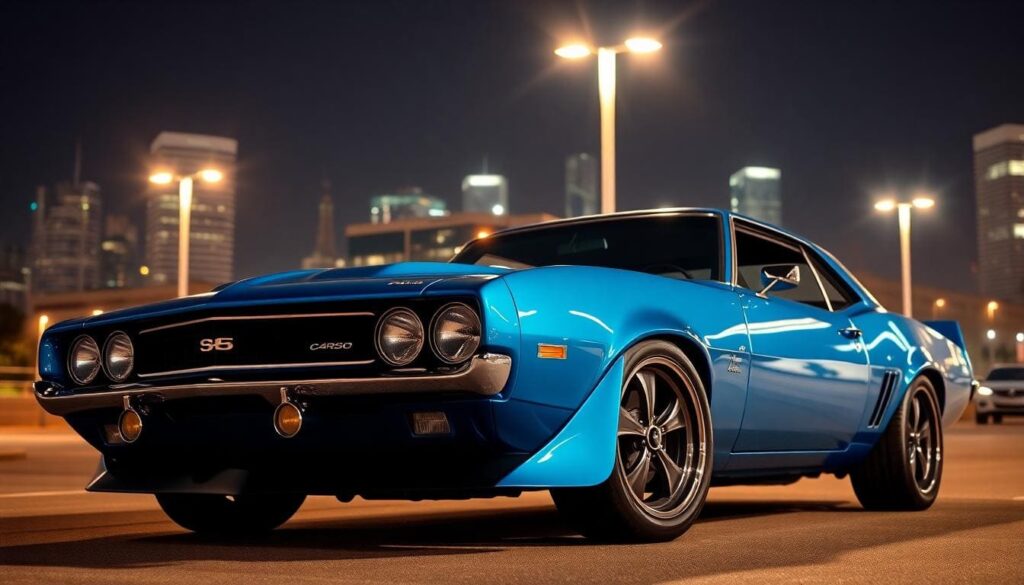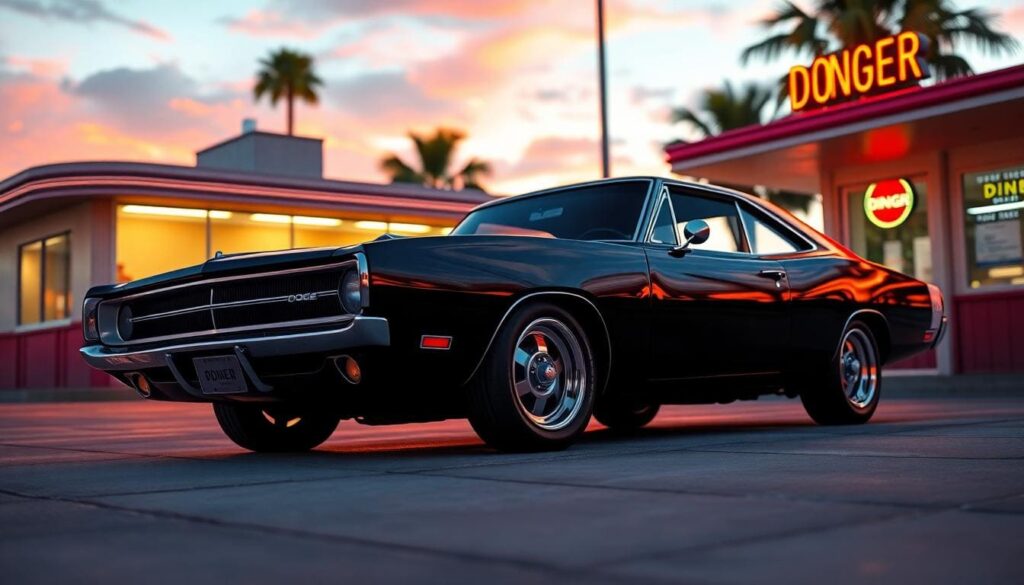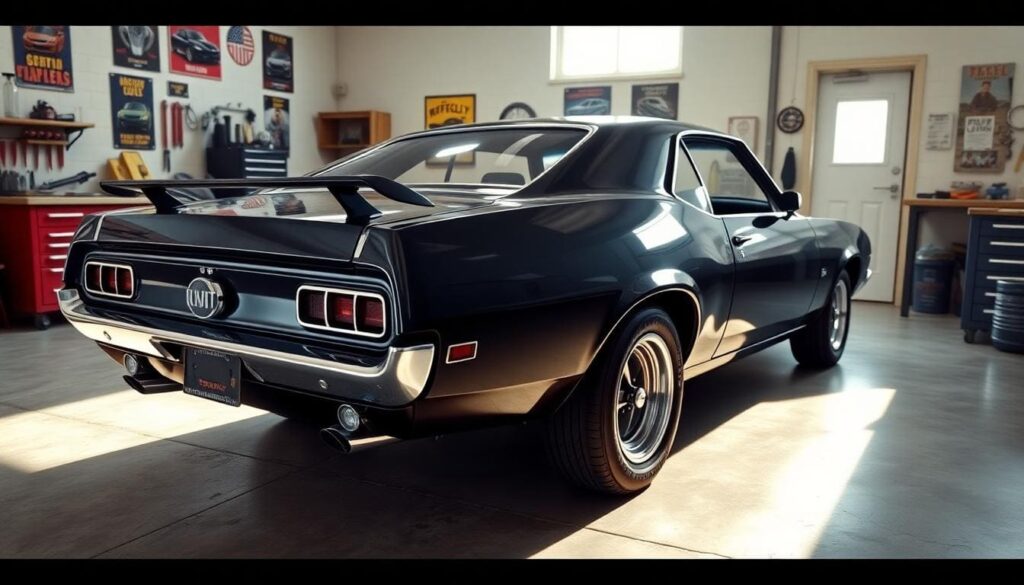Motor oil is an essential component in maintaining the performance and lifespan of your muscle car engine. This article explores the differences between straight-weight and multi-viscosity motor oils, presenting unbiased, research-supported information to help you make informed decisions.
Understanding Oil Viscosity Ratings
Motor oil labels display numbers like “5W-50” to indicate viscosity—the oil’s resistance to flow. These values represent performance under specific conditions:
- “W” Ratings (e.g., 5W): The first number reflects the oil’s ability to flow at low temperatures (winter performance.) A lower number indicates faster flow during cold starts, which is crucial to minimize wear.
- Post-“W” Ratings (e.g., 50): The second number refers to the oil’s high-temperature viscosity at operating conditions, typically around 212°F (100°C.)
This standardized system, developed by the Society of Automotive Engineers (SAE), ensures consistency across manufacturers.
Multi-Viscosity Oils: Adaptive, All-Weather Performance
Multi-viscosity oils, such as 10W-30 or 5W-50, are designed to perform across a wide range of temperatures. Special additives, including viscosity index improvers, allow these oils to behave as thinner oils during cold starts and as thicker, more protective oils at high temperatures.
Advantages:
- Quick lubrication at startup minimizes engine wear.
- Reliable protection under high-temperature, high-stress conditions.
- Suitable for engines prone to temperature fluctuations, such as those in muscle cars used for both cruising and occasional racing.
Example: Leading multi-viscosity options from AMSOIL, Mobil 1, and Royal Purple have demonstrated strong thermal stability and reduced friction in controlled tests. For further insights into synthetic oils and their performance benefits, visit this detailed guide by Hot Rod, which delves into why they are ideal for high-performance engines and hot rods like yours.

Straight-Weight Oils: Consistency in Specific Applications
Straight-weight oils, like SAE 30 or SAE 50, contain no viscosity-altering additives. They offer reliable performance under steady conditions but lack the adaptability of multi-viscosity oils.
Strengths:
- Superior shear stability, holding viscosity better under extreme stresses such as prolonged high-speed driving.
- Commonly used in racing or vintage engines where operating conditions are tightly controlled.
Trade-offs:
- Poor flowability in cold weather, increasing wear during startup.
- Limited versatility compared to multi-viscosity oils.
Straight-weight formulations are often recommended for older engines designed before the advent of modern oil technologies.
Critical Considerations: Engine Startup and Thermal Protection
Engine startups are when most wear occurs due to the oil not fully circulating yet. Multi-viscosity oils excel here, reaching critical components faster in cold conditions. At operating temperature, their additives maintain viscosity to protect moving parts effectively.
In high-performance scenarios, such as track days or drag racing, engines experience prolonged stress. Straight-weight oils may outperform in maintaining stability during these extreme conditions, but multi-viscosity oils are still widely favored for their flexibility across diverse environments.
Selecting the Right Oil for Your Muscle Car
General Recommendation:
For most muscle cars operated in varied conditions, multi-viscosity oils provide superior protection and convenience. Products like AMSOIL Z-ROD® Synthetic Motor Oil include additives like ZDDP (Zinc Dialkyldithiophosphate), which protect flat-tappet cams commonly found in classic engines. Other high-performing brands, such as Mobil 1 Extended Performance or Royal Purple HPS, also offer robust options for demanding applications.
Niche Use:
Straight-weight oils are valuable in specific scenarios, such as racing environments or engines where high shear stability matters most.
Quality Matters:
Always prioritize high-grade oils from reputable manufacturers, as poorly formulated oils can break down under stress, leaving engines vulnerable to damage.

FAQs: Answering Common Questions
- Can I use straight-weight oil in my daily-driven muscle car?
Using straight-weight oil in a daily car is generally not recommended unless you operate in consistently warm climates. Modern engines typically benefit from multi-viscosity oil’s adaptability. - What makes ZDDP crucial for older engines?
ZDDP enhances wear protection for critical components like flat-tappet cams, which are more common in vintage or high-performance engines. - How can I determine the best oil for my muscle car?
Check your vehicle’s manual for recommended viscosity grades. For older engines, consider high-zinc formulations. For high-performance applications, look for oils tested for film strength and thermal stability. - What’s the difference between synthetic and conventional oils?
Synthetic oils use refined base stocks to achieve greater thermal stability, reduced volatility, and improved flow characteristics compared to conventional (mineral-based) oils. Manufacturers like AMSOIL, Mobil 1, and Castrol produce synthetic options designed specifically for high-performance needs. - Does multi-viscosity oil degrade faster due to its additives?
Modern formulations from reputable brands are rigorously tested and engineered to resist degradation caused by viscosity index improvers, ensuring reliable performance over extended drain intervals.
Conclusion
There is no one-size-fits-all answer when choosing between straight-weight and multi-viscosity oils. Your decision should depend on your muscle car’s engine type, operating conditions, and performance needs. By understanding how different oils behave, you can select a product that ensures long-term reliability and performance.
When evaluating products, keep a balanced perspective. High-quality synthetic options like those offered by AMSOIL, Mobil 1, and Royal Purple provide consistency and reliability, making them excellent choices for protecting your engine under varying conditions. Always consult your owner’s manual and consider expert recommendations to make the most informed choice.
